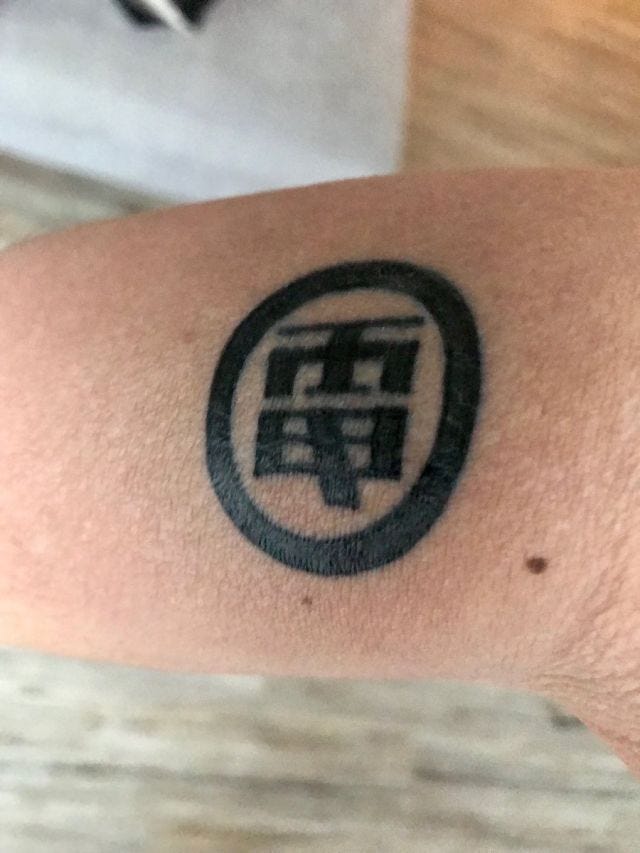Make Believe Mailer Vol. 69: Looking At Aimyon And CHAI
The two breakout artists of 2019 so far in Japanese music have been Aimyon and CHAI. Both started their upward trajectory far earlier, but have launched off in the last few months, albeit in different spaces. Aimyon has become a domestic force, with her latest album performing well (especially on streaming, where she really made her career and, as one label head told me, showed the potential streaming could have in Japan) and her first Budokan show earning raves. CHAI aren't slouching at home -- they appear on the cover of a magazine available in, like, every convenience store I go to -- but they've rocketed off internationally, landing a "Best New Music" among other critical praises and playing to big crowds.
While boasting drastically different musical styles, there are plenty of similarities between the two artists explaining their popularity. Both build on familiar models, and do so while putting an emphasis on lyrics. Aimyon and CHAI also offer snapshots of youth in Japan circa 2019 -- someone who most certainly isn't me could take this the next level and zoom in on how both focus on what it is to be a woman today. Their most recent releases are bound to be among the year's most notable releases, so let's dig a little deeper into them.

Part of me thinks Aimyon's popularity is a market correction for years of Nishino Kana dominating the spotlight. Kana started as straightforward gyaru R&B act before pivoting towards a twee Taylor Swift vibe best summed up by her song "Torisetsu," wherein she recites the "instruction manual" to treating her just right. When she admitted to doing research to figure out that writing songs about grandmas or whatever would sell well, it didn't feel like a shock. It was all delivered with J-drama shine, and everything felt neat.
Aimyon's first big viral hit opens with a verse about dismembering the target of her infatuation, delivered via a video unfolding mostly in the LINE app. While never reaching this extreme again, it pretty much sets the path Aimyon would take, unafraid to dig into all the many sides of life and love, including the messy parts. She's not the first singer/songwriter to do this -- she's very much in the Sheena Ringo lane when it comes to that -- but she's probably the first person Gen Z in Japan can connect to doing it. Her first major label full-length, Excitement Of Youth, makes that much clear, while also showing that she's willing to try out a bunch of styles (ignoring genre walls -- how internet!).
Momentary Sixth Sense is at its best when plunging in deeper. Opening number and album highlight "Mangetsu No Yorunara" starts by talking about one's ice melting in one's mouth...vanilla, if you were curious. Which, yeah pretty clear what is going on here before you get to the parts that make it clear this is about (to paraphrase, the part about wanting to make them wet probably does it). The twist is Aimyon has said in interview this is written from the perspective of a boy, but whatever eyes we are seeing this bedroom scene from it is far more detailed about sex than most J-pop, at least of the last few years, boosted further by a more rhythmic approach to writing that gives it a back-and-forth motion.
And it's these moments of locked-Twitter-account intimacy that stand out. Well, that and the songs that rise above mid-tempo radio fodder, as "Mangetsu" does. Same with "Yume Oui Bengal," a galloping rock number that is the closest she's coming to the underground now doubling as a celebration of no-hope-no-cash-no-jobs modern life in Japan. She celebrates all the free time she has, mocks others for being sex obsessed and makes a clever joke about her bank book looking like a seagull (all white...no money). "Futari Dake No Kuni" uses a slowed-down delivery to build a closeness made stronger using weird (well, to me) slang.
Momentary Sixth Sense suffers from common J-pop trappings -- slower moments that even Aimyon's cleverest words can't elevate, though she really does a great job pushing most of this album up when you dig in deep on the lyrics (the one exception being her now-defining hit "Marigold," a good-enough number marred by pretty meh metaphors about flowers. This is nothing like seagull-colored bank books!). But it's a showcase of her greatest strength, which is the ability to write from the perspective of all kinds of young people. This isn't a personal album, but an album that can feel personal to almost anyone growing up in 2019.

If Aimyon dissects familiar emotions, CHAI revel in something initially teasing nonsense that ends up being every bit as insightful. “That’s a love song, yeah, but it’s way too early for us to talk about loving someone else,” the band told me last year about "Horechatta." “But we could totally write a love song about gyoza, which is something all of us love." On newest album PUNK, CHAI have gone from odes to dumplings and fried food to self-love.
This one still works wonders even if you treat the lyrics like just another musical layer, though CHAI peppers plenty of English bordering on slogan-worthy throughout (small aside: there was a time when the defining stereotype of all Asian music was the use of seemingly random English. This has vanished in the last few years unless you talk to the bonehead ALTs lurking around Hub, which is a welcome development). It's one of the best sounding albums so far in 2019, going from all-together-pop ("I'm Me," "Choose Go!") to the more twisty-turvy stuff that got them attention in Japan initially ("Great Job," "Fashionista"). It offers up maybe their best song to date in the synth-based cut "Curly Adventure," and features just a bunch of weird vocal samples in the margins, including on the sample-delica rally of "This Is CHAI," which naturally comes midway through the album.
But plenty of great albums have come out of Japan over the past decade -- why has this one resonated so much on both sides? Probably because PUNK just tightropes cultures right, being empowered for Western listeners while actually kind of being punk in a Japanese context (where celebrating yourself is coming along but...still not totally there). CHAI's goofier side still wins the day for me, because what initially feels just funny quickly reveals itself to be far more resonate. "Curly Adventure" is about not liking your curly hair, which seems light-hearted enough as they sing about moistures until you remember...right, that is a real thing. "Great Job" explores another complex, the feeling of inferiority because of work, and "Fashionista" flips the exclusive world of fashion into something that can make anyone feel great on the daily. CHAI never really try out Aimyon-like metaphor -- they state facts directly, and make it obvious what they are doing (how internet!). Both artists bring up food a lot, but whereas Aimyon uses sweets as a stand-in for sexual awakening, CHAI just list candies and foodstuffs on "I'm Me" to lay out...well, this is me. And they really are just wonderful the way they are.
News And Views
Coming late in the week but ultimately towering over all other music news, NGT48 shared the third-party report regarding the December assault of member Maho Yamaguchi. It found that no other members of the group were involved, while also saying the management did a poor job in several aspects and that at least 12 members of the group have had personal relationships with fans (which wasn't really counted into the Yamaguchi report which....OK). Plenty already were questioning investigations like this, but after this came out Yamaguchi herself hit back via Twitter, calling it lies.
In the same universe, AKB48 became the second best-selling artist of all time, going ahead of Mr. Children. Odds of them getting past B'z, the top dog, are slim, but dare to dream, Akimoto.
Rock artist Yuya Uchida died last week. I wrote a post about his career, as have plenty of others. I did really like W. David Marx's thread on him, and how his view of rock 'n' roll failed compared to the Happy End model. Unless you are Julian Cope and live in your own world of make believe.
Takkyu Ishino is firing back at the whole Pierre Taki situation by recreating Denki Groove photos solo and getting inked up for the first time in his life (below)

Hoshino Gen wins the CD Shop Awards 2019 for an album I've...yet to listen to because I need to renew my Tsutaya card / tracking device. The "blue award" went to Orisaka Yuta's Heisei, which was recently the centerpiece of an interesting Japanese article about how 2018 marked a change in how percussion sounded in Japanese music.
This article about how China is going to be next up in music dominance is fine (even though I dream of a deeper dig into how the industry there is prepping for the future), but it's funny they make Arashi kind of the hook and relegate K-pop to lower down despite...you know...
Haunted by this Ichiro Suzuki baseball card from 1993, where he names DJ Magic Mike his "favorite entertainer." God damn legend, and I'm an Angels fan!

If you needed proof that going against the mainstream grain doesn't equal good music, Suchmos' new eight-minute-long song should do the trick.
Oricon Trail For The Week Of March 11, 2019 To March 18, 2019
Will AKB48's latest single be their last million-plus seller ever? Given the lack of an election this year and just the general crossroads the group finds themselves at, it isn't too radical to think that Rino Sashihara's final number with the group could be a last hurrah. Musically though, it kind of is business as usual. Trying to pretend everything is a-ok, or is sticking to the same digi-horn blurts of the past decade the actual best way to say goodbye?
Perfume's GAME (33 1/3)
My entry in the 33 1/3 series is still out there! Get a copy at Amazon or Bloomsbury today.
Look At Me!
For Pulse, wrote about the online response to Pierre Taki and other criminal cases involving celebs in recent years.
Also wrote about the state of vinyl in The Japan Times. Load up on those CDs though, never known when digital files will just vanish!
Written by Patrick St. Michel (patrickstmichel@gmail.com)
Make Believe Melodies / Twitter / Facebook


